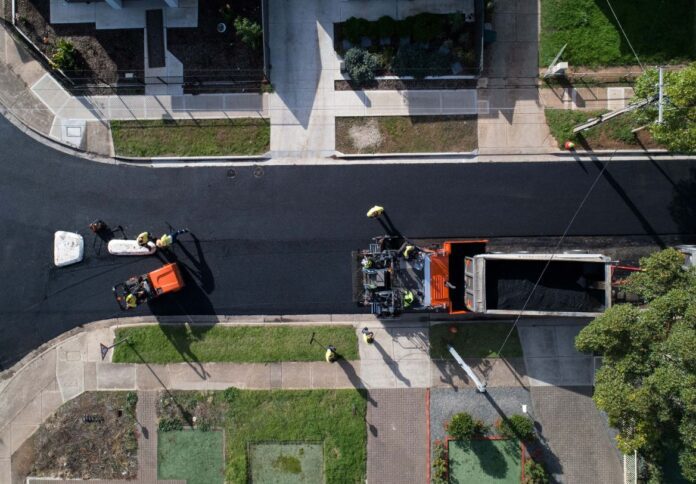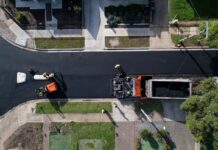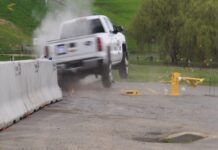
Sunshine Coast Council is taking bold steps towards sustainable infrastructure by incorporating end-of-life Off-the-Road (OTR) tyres into asphalt for tougher environmental conditions.
Leveraging the durability of OTR tyres, the council aims to enhance road resilience and sustainability while addressing the challenges posed by Queensland’s demanding terrain, Tyre Stewardship Australia said in a news release.
Road users traversing Railway Parade (Glass House Mountains), Spalls Road (Diddillibah), and Perlan Street (Nambour) are participating in an innovative initiative that utilises crumb rubber from OTR tyres in asphalt mixtures.
By repurposing OTR tyres, which are commonly employed in Queensland’s mining and agriculture sectors, the council is striving to create roads capable of withstanding the rigors of heavy usage and adverse weather conditions.
This project, a collaboration between Sunshine Coast Council and regional businesses such as Boral, Allens Asphalt, Carroll Engineering, and Puma Energy Bitumen, is spearheaded by the Australian Flexible Pavement Association (AfPA).
With support from RMIT University and Tyre Stewardship Australia, the initiative aims to evaluate the optimal blend of rubber binder and asphalt for superior performance across various traffic conditions.
Rick Baberowski, Sunshine Coast Council’s Community and Transport Portfolio Councillor, underscored the trial’s significance in advancing the region’s sustainability agenda.
“We look forward to seeing the results of the trial which aims to ensure safety, environmental and cost saving benefits for our community,” he noted.
Lina Goodman, CEO of Tyre Stewardship Australia, applauded the initiative’s potential to address environmental challenges while stimulating economic growth.
“The use of locally sourced tyre-derived materials in regional, rural, and remote infrastructure, has the potential to put a big dent in the 245,000 tonnes of OTR rubber products generated each year, most of which is buried on-site or dumped, creating potential for environmental harm, health risks and missed economic opportunities,” she explained.
The trial’s outcomes are expected to provide valuable insights for councils and industries grappling with OTR tyre management.
AfPA will offer technical reports based on accelerated aging tests conducted by RMIT, facilitating informed decision-making and promoting the adoption of sustainable practices in road construction nationwide.
For more information and updates on the trial, councils and OTR rubber product users can contact AfPA for comprehensive reports and insights derived from ongoing assessments and evaluations.

















